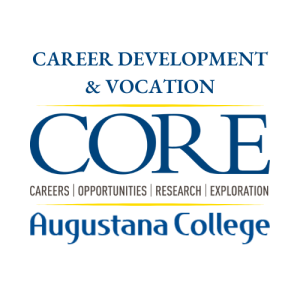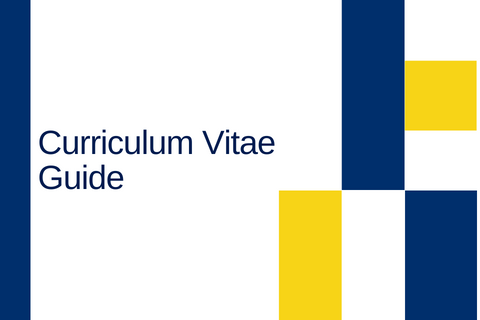Curriculum Vitae Guide
A curriculum vitae (also referred to as a CV) is a type of resume that tends to have a more academic focus. It is often required for candidates applying to positions in medical, academic, and research fields. Unlike a resume, which is usually one to two pages long, CVs can be as long as is necessary to showcase the writer’s accomplishments. While some employers use the terms resume and CV interchangeably, it is important to distinguish what document is most appropriate for your career goals. For those applying to certain graduate programs, medical school, and academic and research positions, a CV would likely be the best fit. For most undergraduate and graduate students pursuing positions in industry, a resume would be more appropriate. If you are unsure about whether to prepare a CV or a resume, consider discussing your situation with others in your field or your Career Coach.
About Curriculum Vitae (CVs)
Lacking a page limit, CVs often provide extensive detail on a broad range of professionally relevant experiences, and may include the following sections:
|
Teaching Research Education/degrees Continuing education Advanced training Study abroad Workshops Academic service Computer skills Scholarships Fellowships Grants Clinicals |
Publications Books Articles Reviews Presentations Seminars Symposia Translations Licenses Credentials Professional affiliations Bibliography Committees |
Courses taught Conferences attended Dissertation/thesis Employment Class projects Honors & Awards Volunteer experience Languages Laboratory skills Technical skills Consulting Practica/ assistantships Activities |
Due to the broad variety of experiences you can highlight in your CV, it might be helpful to compile all your experiences in one document before deciding on a format or organizational structure. For each experience, make sure to include relevant details such as position titles, organization names, locations, and dates. For experiences that fall outside of traditional employment (such as fellowships, post-docs, or courses taught), try to provide as much information as you can so that readers can effectively evaluate you as a candidate. Including background information will help potential employers understand the academic and professional experience you have to offer.
Once you have your raw data available, building your CV should be simple due to the emphasis on content over form. Avoid any flashy or distracting fonts, which will look out of place and distract readers from your content.

